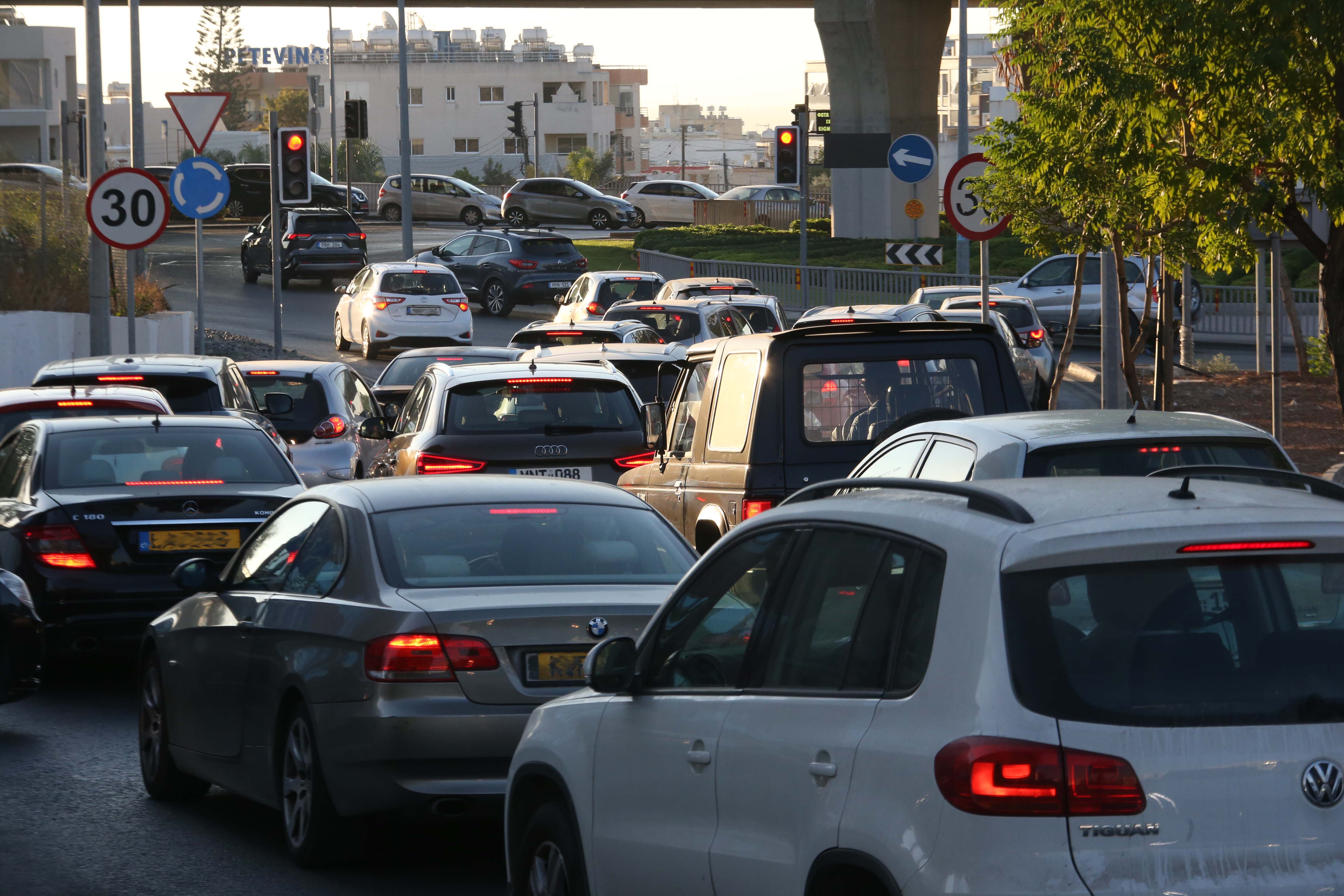The government is investing tens of millions of euros to manage Cyprus’ traffic problem, although, according to Transport Minister Alexis Vafeades, the issue is not easy to solve.
Vafeades, speaking on the sidelines of the Oxi Day celebrations in Larnaca on Monday, said the most urgent need is to “remove cars from the roads by providing alternative options, such as cycling and walking”.
His statements came on the back of last Friday’s House finance committee meeting, where he presented his ministry’s €780 million budget for 2025.
During the meeting, MPs spoke of worsening traffic congestion throughout the country and pressed Vafeades on various issues, including traffic cameras, roadworks, incentives to withdraw old cars, project delays and the reported congestion at Larnaca airport.
On Monday, Vafeades responded to reports suggesting a possible ban on polluting vehicles in Nicosia’s old town.
“I have never made such a statement, nor has this option ever been presented to me,” he said.
He also explained that the government is required to implement certain measures under European Union obligations. However, he stressed that any new measure would only be introduced “when the issue has matured and when residents support it, as they will benefit from reduced air pollution, an improved quality of life and fully established complementary measures”.
Furthermore, Vafeades addressed the daily frustrations caused by traffic, describing them as “complex issues requiring various approaches, beyond public transportation solutions”.
“We must also consider how our daily schedules, such as school and work commute times, contribute to traffic,” he said.
The minister pointed to alternative options to decrease traffic, such as cycling and walking, and reiterated that the government is making substantial investments to address this issue.
“The state is investing tens of millions of euros to tackle this issue, but it is not something that can be solved quickly,” he said.
He then highlighted the rapid increase in vehicles, citing Limassol as an example, where vehicle numbers have doubled over the last decade.
“No road network can keep up with such an increase in private cars, no matter how many roads are built,” Vafeades said. “Therefore, we must consider other serious options.”
When asked about the possibility of restricting heavy vehicles during peak hours, he replied that all options should be explored.
“If society could be better served by a different regulation, it would be worth studying it, but this can only be determined after consultations with all involved parties,” he said.
Vafeades then added that the government’s approach to solve traffic issues includes careful analysis and community collaboration.
“Our approach is to work closely with local communities so that any solution, when fully developed and implemented, will have the support of residents, who will benefit from improved air quality and other quality-of-life enhancements,” he said.






Click here to change your cookie preferences